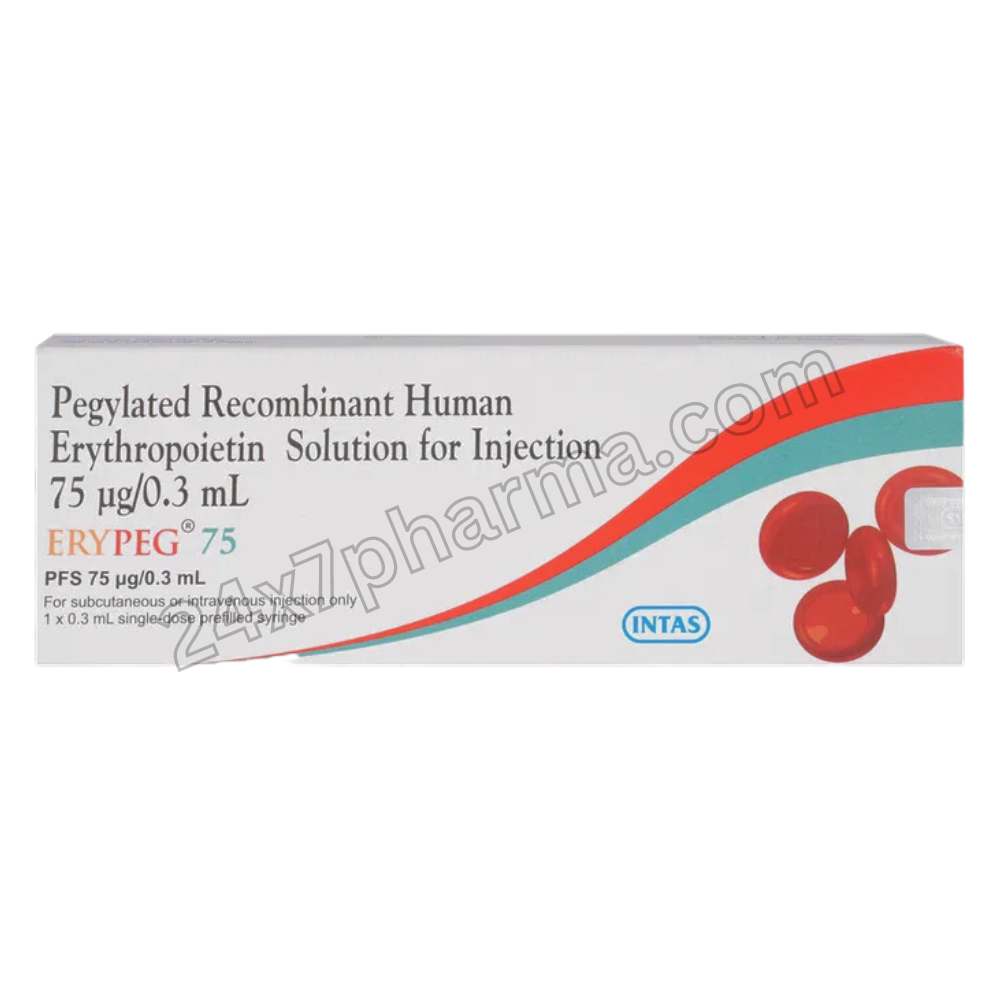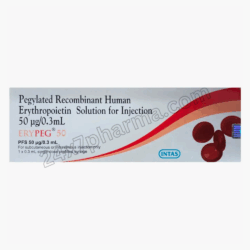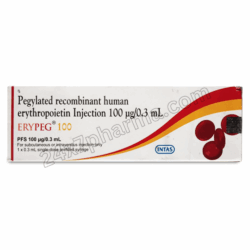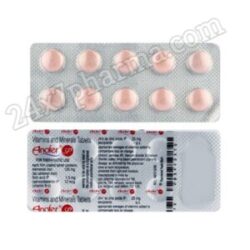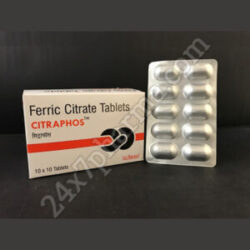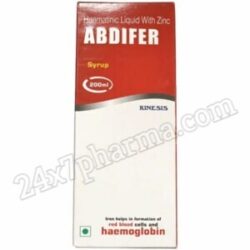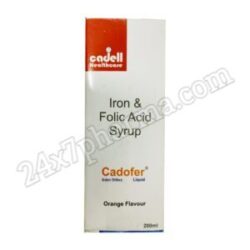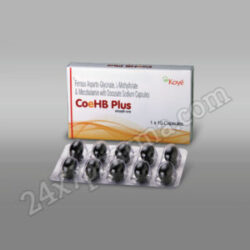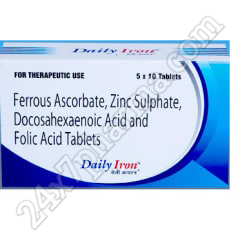Erypeg 75 mcg Injection, a form of erythropoietin injection, is a medical breakthrough for managing anemia, particularly in patients with chronic kidney disease (CKD) or those undergoing chemotherapy. This injection, designed to stimulate red blood cell production, helps improve oxygen delivery to tissues, alleviating symptoms of fatigue and weakness caused by anemia. Let’s delve into how this medication works, its uses, side effects, and precautions.
How Does Erypeg 75 mcg Injection Work?
Erypeg 75 mcg contains erythropoietin, a synthetic form of a natural hormone produced by the kidneys. Erythropoietin is vital for red blood cell production in the bone marrow. When the body experiences a deficiency of red blood cells due to anemia, this hormone triggers the bone marrow to produce more, restoring healthy levels of red blood cells.
This erythropoietin injection is particularly effective in treating anemia associated with chronic kidney disease and chemotherapy. By addressing the root cause of anemia, Erypeg 75 mcg not only improves hemoglobin levels but also enhances overall energy levels and quality of life.
How to Use Erypeg 75 mcg Erythropoietin Injection
Using the medication correctly is essential for achieving optimal results. Follow these steps for proper administration:
- Consultation: Always use this medication under the guidance of a healthcare professional. Your doctor will determine the correct dosage based on your medical condition, hemoglobin levels, and response to treatment.
- Administration: Erypeg 75 mcg Injection is typically administered as a subcutaneous or intravenous injection. A trained healthcare provider should perform the injection to ensure accuracy and safety.
- Schedule: Adhere strictly to the prescribed schedule. Missing doses or altering the dosage can compromise the effectiveness of the treatment.
- Storage: Store the injection in a refrigerator (2-8°C), but avoid freezing it. Keep it out of direct sunlight and ensure it is used before the expiration date.
- Self-Administration: If your doctor advises self-administration, they will provide detailed instructions. Ensure you follow these guidelines meticulously.
- Dosages: The dosage of Erypeg varies depending on the patient’s medical condition, as it has Erypeg 100 mcg injection, which will be recommended by your Healthcare has per the Treatment
Erypeg 75 mcg Erythropoietin Injection Side Effects
Like all medications, Erypeg 75 may cause side effects in some individuals. Common side effects include:
- Injection site reactions: pain, redness, or swelling at the injection site.
- Hypertension: Elevated blood pressure may occur, especially if hemoglobin levels increase rapidly.
- Headache: Some patients report mild to moderate headaches.
- Fatigue: While uncommon, fatigue may persist initially as the body adjusts.
- Flu-like symptoms: fever, chills, and muscle pain can occur but typically subside over time.
If you experience severe side effects such as chest pain, shortness of breath, or signs of an allergic reaction, seek immediate medical attention.
Warnings & Precautions
Before using Erypeg 75 mcg injection, consider the following precautions:
- Medical History: Inform your doctor about any medical conditions, particularly uncontrolled hypertension, seizures, or cardiovascular diseases.
- Pregnancy and Breastfeeding: Discuss the risks and benefits with your healthcare provider if you are pregnant or breastfeeding.
- Allergies: Notify your doctor if you are allergic to erythropoietin or any of the injection’s components.
- Monitoring: Regular monitoring of hemoglobin levels and blood pressure is essential to avoid complications.
- Iron Levels: Ensure adequate iron stores in your body. Iron supplementation may be necessary to optimize the effectiveness of this erythropoietin injection.
- Overdose Risks: Never exceed the prescribed dose, as it may increase the risk of severe hypertension or thrombotic events.
FAQs
Q1. How quickly does Erypeg 75 mcg injection work?
Ans: The response to treatment varies among individuals. Most patients notice an improvement in hemoglobin levels within 2-6 weeks of regular use.
Q2. Can I use Erypeg 75 for anemia unrelated to CKD or chemotherapy?
Ans: While this erythropoietin injection is mainly prescribed for specific types of anemia, consult your doctor for advice tailored to your condition.
Q3. Are there dietary restrictions while using Erypeg 75 mcg injection?
Ans: There are no strict dietary restrictions, but maintaining a balanced diet rich in iron, folic acid, and vitamin B12 can support red blood cell production.
Q4. What are the erythropoietin injection uses beyond anemia?
Ans: While primarily for anemia, erythropoietin injections may be used in other conditions as determined by a healthcare provider.

